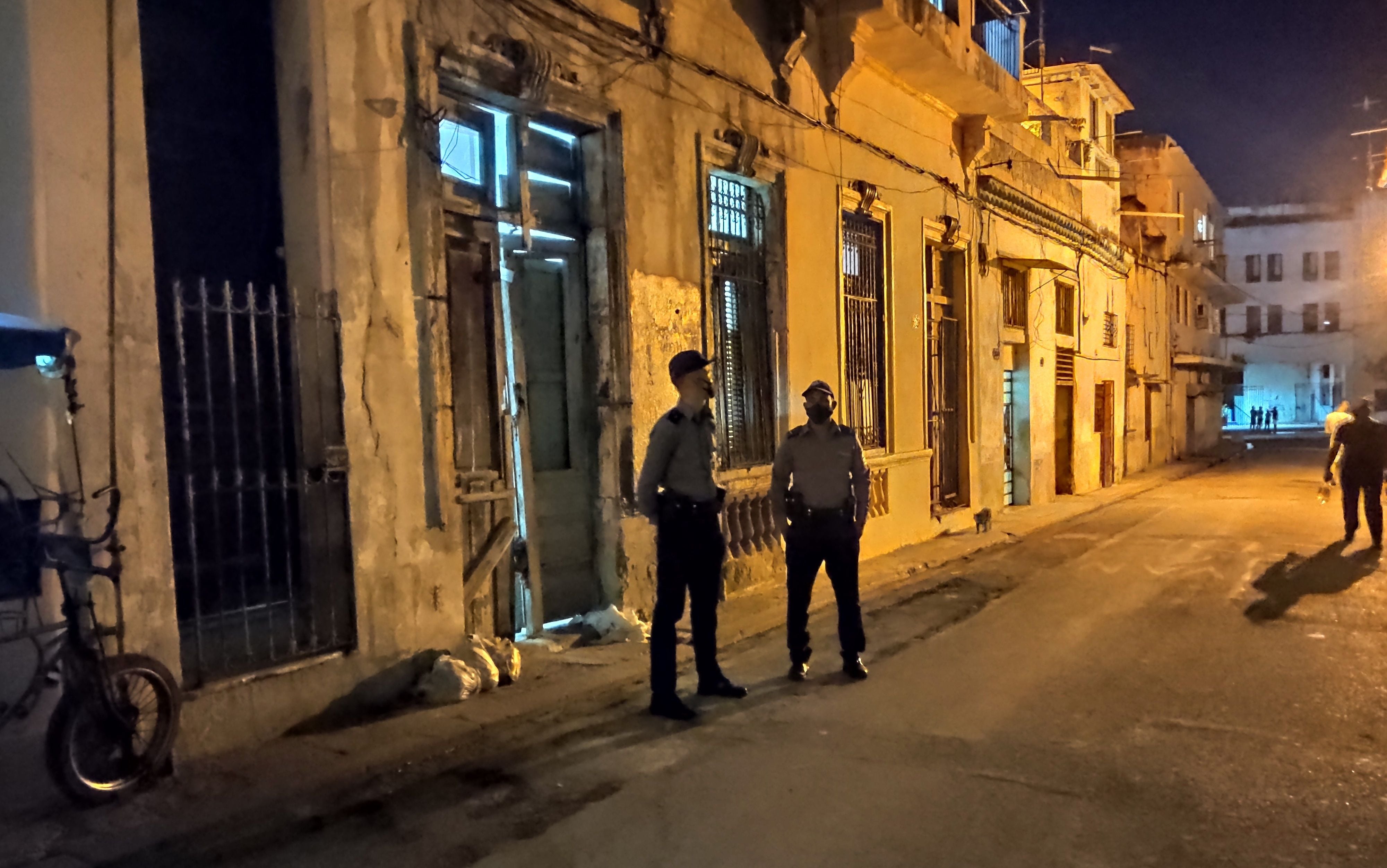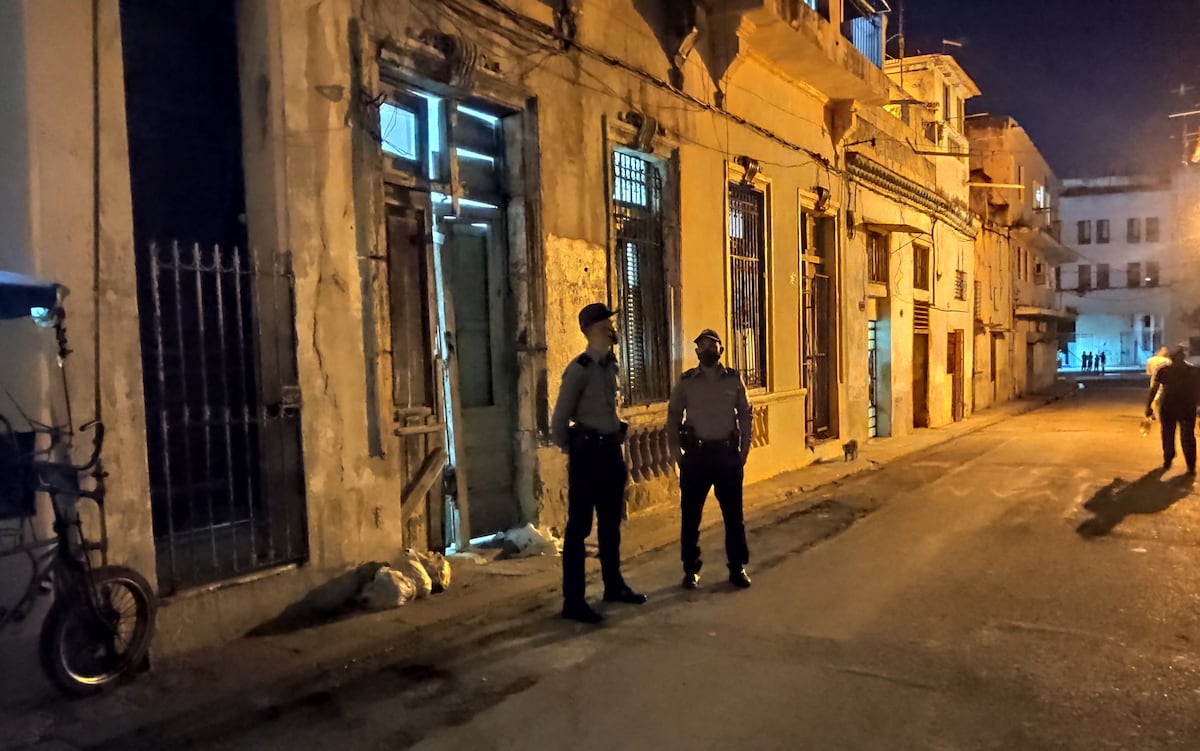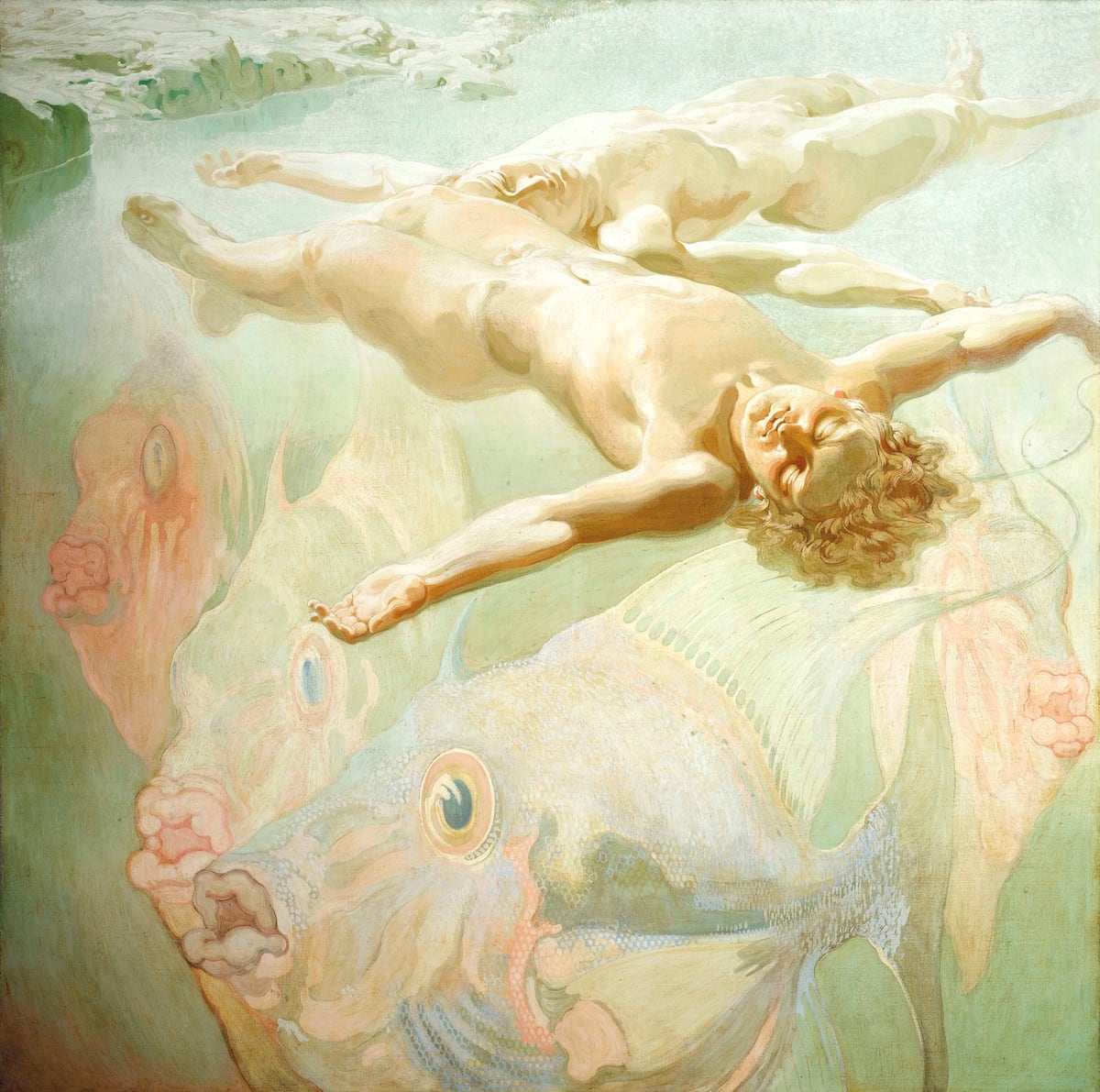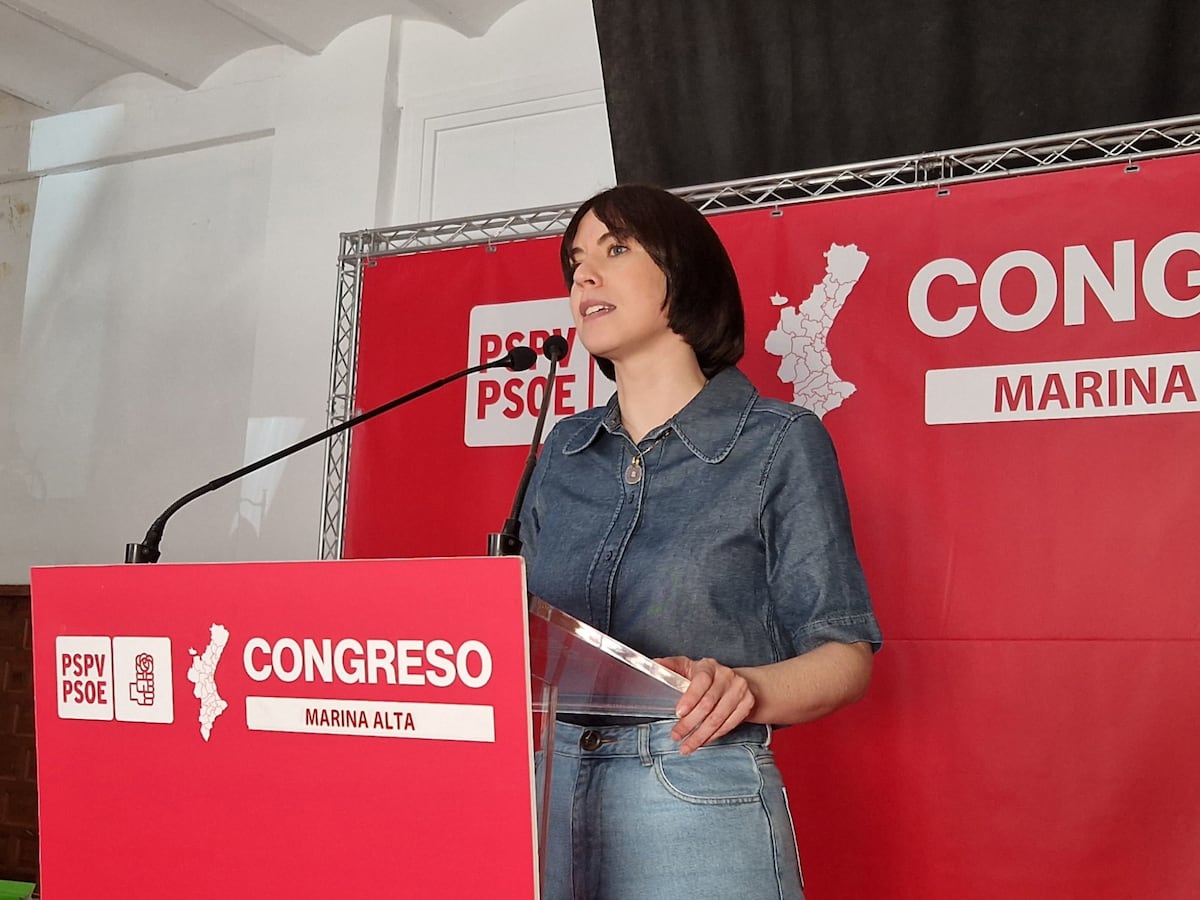[ad_1]

There was a time when Daniel Morejón García moved with authority among the residents of Las Cañas, a town southwest of Havana, Cuba that doesn’t have a cemetery, but does have an animal feed factory, a main street, a train line, a pharmacy, a park and a movie theater. Morejón, 57, is tall, powerfully built, even “handsome” according to those who know him. He was always well dressed and flaunted a pistol that made him stand out among the local residents. Some call him “arrogant,” others say he liked to boast about the power he’d been granted. “He wanted to imitate the dictator Fidel Castro, and that’s how he behaved,” says Maykel Bencomo, 43, who has known him since childhood and remembers him acting with peculiar arrogance toward the regular folks of Las Cañas. But now the roles have been reversed, and Morejón isn’t the one who intimidates, but the one who feels fear. He is no longer the one who sends anti-Castro supporters to jail in Cuba, but instead finds himself a prisoner in the United States.
Andrea Betancourt, 55, still remembers as if it were yesterday the day when, at a single court hearing, she had her six-year conviction reduced to three years, while Morejón was acquitted of all charges over the events of July 11, 2021—a date remembered in Cuban history as the day thousands of people took to the streets demanding freedom and reforms.
That day, Andrea went to the town park, joining a demonstration that drew dozens of people. At one point, she saw Morejón, dressed in civilian clothes, lunge at her neighbor Armando Martínez Luis, 64, hitting him several times in front of everyone. “It was abuse,” she says, having already served her sentence for contempt of authority by working in the fields.
Until that day, the townspeople knew that Morejón had some degree of authority, but not that much. He had turned Las Cañas into a kind of personal ranch where he managed the feed factory, the main restaurant, and the place where famous banana smoothies were sold. In the city of Artemisa, where he lived, he boasted of “excessive luxury,” with houses that stood out from the rest. Some say he “laundered money” through private micro, small, and medium-sized companies (known as mipymes in Cuba), and that he had ties to the military business group GAESA in the Mariel Special Development Zone. But it wasn’t until July 11 that they learned that Morejón was a much more “dangerous” individual than they had believed.
“The townspeople didn’t know he was a person with positions” in the Communist Party and the government, Andrea says. On the day of the protest, she was one of the people who intervened to get Morejón away from Martínez Luis, whom he was viciously beating. Andrea and four others were sentenced to up to eight years in prison for contempt of authority. Some remain incarcerated in the Guanajay prison to this day. Morejón, for his part, was awarded a medal at a ceremony in the town park. “For his good work repressing the people who rebelled on July 11,” says Sonia, a former resident of Las Cañas now living in exile.
Four years after that incident, in Las Cañas, a town where everyone has family ties, some people approached Andrea to give her news about Morejón. Not only had he moved to the United States some time ago, but it emerged that “her oppressor,” the man due to whom she ended up serving time, was now in the custody of U.S. Immigration and Customs Enforcement (ICE).
In mid-March, the federal agency publicly announced the arrest in Florida of Morejón, who had recently settled in the home of one of his daughters in Miami. In photos released on the day of his arrest, the Cuban man is seen with an unhappy look on his face and in handcuffs, as two police officers lead him to a Department of Homeland Security (DHS) vehicle. “He thought he was so untouchable that he ended up here in Miami,” says Sonia, who can’t deny feeling relief at seeing him in the custody of U.S. immigration authorities.
The arrest, according to DHS, took place after an investigation revealed that Morejón made “fraudulent statements” upon entering the country and concealed his affiliations with the Miguel Díaz-Canel government in Cuba. In his immigration application, Morejón omitted the fact that he was a member of the Communist Party, an agent of the Ministry of the Interior, president of the Artemisa National Defense Council, and a member of the Rapid Response Brigades, a type of repressive squad used by the government to quell anti-establishment protests like those of 2021. The U.S. law is clear in its policies addressing the “inadmissibility” of “any potential immigrant” to the country based on membership or affiliation with the Communist Party or any other “totalitarian party,” which it considers a “threat to national security.”
Immigration attorney Santiago Alpízar, who heads Cuba Demanda, an initiative that has been denouncing the protection of Cuban “repressors” by the United States for more than 10 years, told EL PAÍS that, by allegedly lying in an immigration form, Morejón committed “at least the crime of perjury and, in addition, immigration fraud, because he is trying to obtain a benefit by falsely stating his true nature and hiding his repressive past.” “Depending on the severity of the crime, he could serve sentences of up to 60 months in federal prison,” he maintains.
Today, Morejón is in ICE custody, awaiting deportation back to Cuba. Some residents of Las Cañas, who joined together to denounce all the harm Morejón caused in their town, view his arrest as a victory. “I’m so happy that justice is being done, that the people who have caused so much harm in Cuba are being returned,” says one of them, Katty—she prefers not to give her last name—who has known him for years, since before she emigrated to Mississippi. “It’s a huge triumph, because when I was a child, the police raided my house and pulled me out of bed, and those people then joined us in exile, and I couldn’t do anything about it. Daniel thought he was so powerful, so important, that he thought he could come to this country. But no, sir, you’re staying where you were trained to be a repressor.”
“I am concerned to see politicians acting like prosecutors”
Morejón is not the only Cuban repressor targeted by U.S. immigration authorities. His is just one of 100 names on the list that Carlos Giménez, a House Representative for Florida, has provided to U.S. authorities for deportation consideration. “The presence of these regime operatives not only endangers our communities, but also provides the Cuban regime with a base for espionage, political coercion, and illicit activities within our borders,” the congressman said in a letter to DHS Secretary Kristi Noem.
Some of the most talked-about cases include former judge Juana Orquídea Acanda Rodríguez, 62, deported to Cuba in April after entering the United States without disclosing her ties to the Communist Party. Others arrested by U.S. authorities include Tomás Emilio Hernández Cruz, 71, a former member of Cuban intelligence, who allegedly lied to obtain permanent residency, and former judge Melody González Pedraza, who convicted four young people in Cuba for protesting and is now detained in the United States.
Recently, Republican politicians in Florida had accused the Democratic administration of Joe Biden of facilitating the entry of many migrants through programs like humanitarian parole that led to an influx of repressors—not only Cubans but also those from other countries such as Venezuela and Nicaragua. Although it is true that for decades these so-called repressors have also been part of the Cuban exodus, mostly with South Florida as their final destination, some see this recent “hunt” as a counterproductive political move for a community that, for the first time, is also facing fallout from the government crackdown on irregular immigration.
“At a time when Cuba is at its weakest point in history, instead of focusing on finding solutions for the future, we’ve begun a witch hunt,” former Florida congressman Joe García tells EL PAÍS. “I also fear that this will be used as a Tren de Aragua, to persecute Cubans.”
Some see in this “hunt” a similarity to the persecution the government has unleashed for decades against those who oppose it, whether by listing names or canceling those who think differently. There is also a risk of stigmatizing people arriving from a country where membership in political organizations like the Communist Party or the Union of Young Communists (UJC) is practically mandatory.
“What worries me most is seeing politicians acting as prosecutors,” García maintains. The lawyer insists that, for those who have committed verifiable abuses on behalf of the Cuban government, there are laws like the Magnitsky Act, which applies to foreigners accused of corruption and human rights violations. “In the future, the Cuban nation will have to find the best way to deliver justice. Horrible things have been done on both sides, but what is unacceptable is for someone to be accused by people who have no evidence, and for this to become a political tactic to gain ground.”
Sign up for our weekly newsletter to get more English-language news coverage from EL PAÍS USA Edition
[ad_2]
Source link







Comentarios